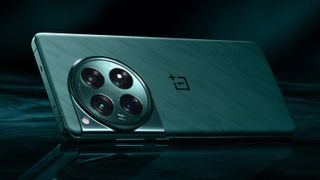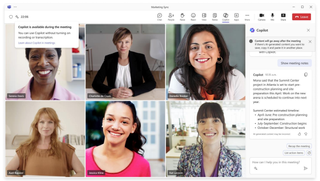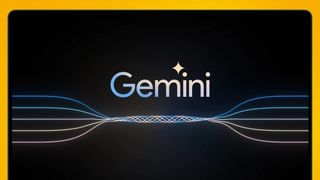ICYMI: the week’s 7 biggest tech stories, from Google Gemini to Windows 12
It seems like it's never too late in the year for a big tech announcement. While most tech companies were preparing for CES 2024 next month, Google decided to make the biggest announcement of the year this week with Gemini, its most powerful AI brain yet.
Gemini is a vague, shape-shifting beast that's both in some existing products – like Google Bard and the Pixel 8 Pro – and in a futuristic concept that shows where Google's AI is going. Sure, the demo video may be somewhat staged, with Gemini not yet capable of real-time conversations, but it's still a milestone for Google and AI.
Not that this new chapter in the story of artificial intelligence was the only news this week. a GTA6 trailer has finally landed and came with gut feelings that it won't be coming to PCs at first, while Windows 12 got a leaked 2024 launch date.
Been busy doing Christmas shopping? Here are all the biggest tech stories of the week in one handy five-minute overview…
Subscribers to Netflix's Premium plan recently absorbed yet another price hike, making the service's 4K and HDR-enhanced tier one of the pricier options among the best streaming services. To help ease that bitter pill, Netflix followed up with the announcement that it had completed an upgrade to its streaming library, an upgrade that specifically improves the video quality of 4K titles with HDR.
The upgrade comes in the form of dynamically optimized encodings for 4K video streaming, a process that not only improves the look of Netflix content on TVs, but also on tablets and phones. Will it be enough to stop Premium subscribers from jumping to the more affordable ad-supported tier, or cancel the service entirely? Time will tell. But in an increasingly competitive streaming landscape, better-looking 4K movies and shows are an advantage that Netflix can bring to the bank.
This week, Meta's director of display systems research, Douglas Lanman, showed a view of Mirror Lake during a lecture at the University of Arizona College of Optical Sciences. This next-generation VR headset looks like a cross between the Meta Quest Pro and Apple Vision Pro – with its open design taken from the Quest, and a version of the (slightly creepy) EyeSight found on the Apple – headset.
It also adds a few high-end features that would be new to consumer XR headsets, including electronic varifocal and HoloCake lenses – optical systems designed to make the images look more realistic and the headset slimmer, respectively. While Lanman described the headset as “practical to build now,” it will likely be years before Meta CEO Mark Zuckerberg previously described Mirror Lake as something we could see “in the second half of the decade.” after that (or maybe late 2025, if we're lucky).
Even if you've been busy Christmas shopping, you've probably heard of the former GTA6 trailer (above) that was leaked and quickly released this week. The bad news? Coupled with the fact that the game will be released sometime in 2025 (so possibly two years from now in the worst-case scenario), it won't initially launch on PC either.
For anyone whose main gaming workhorse is a PC rather than a PlayStation 5, Xbox Series GTA 6 will likely make its way to PC at a later date, but not until 2026 or later – which means it might be time to finally give in to temptation and buy that PS5.
This week, the last flagship smartphone of 2023, the OnePlus 12, was received to loud cheers from fans of somewhat alternative phone brands. It has a big battery, a fast chipset and loads of RAM – so why isn't it higher on this list? At the moment, the OnePlus 12 is only available in China.
Still, the long-awaited contender for our best phones guide should be more widely available from late January, and there's a strong case for its inclusion in that list. That battery has a capacity of 5,400 mAh and charges at a fast 100W, and the OnePlus 12 is also powered by the latest Snapdragon 8 Gen 3 chipset. It's certainly looking pretty tempting in the run-up to that global launch…
This week, Disney announced its lineup of Marvel and Star Wars shows set to release in 2024. And while everyone is waiting for Andor season 2 was sadly disappointing, but the entertainment giant did reveal that two Star Wars and three Marvel projects will make their debut on the streaming giant.
We got the first live-action production set during the Star Wars Era of the High Republic, called Star Wars: The Acolytewhile Star Wars: Skeleton Crew – a series that draws inspiration from the beloved '80s film The Goonies – is also on its way.
Windows 11 has struggled to set the world on fire, but next year could be different for Microsoft's operating system. New leaks this week suggested that Windows 12 could arrive as soon as June 2024.
While Microsoft hasn't said anything official yet, these rumors line up with speculation we've heard before – and it seems, somewhat predictably, that AI-powered features could be at the heart of Windows 12. This could mark the arrival of a new wave of 'AI' PCs and some bigger changes than the ones we've seen from the Copilot Assistant in Windows 11. Good news for us, but perhaps better news for laptop makers, who are struggling with a downturn in PC and laptop sales.
Google Gemini is perhaps the biggest announcement of the year for the tech giant – and this week's news summed up both the good and the bad of 2023's AI hype. On the plus side, intense competition between OpenAI, Microsoft, Google and more is clearly driving some rapid improvements in major language models. And for us that means a lot of fun, useful software functions.
These Gemini-powered tricks include an improved Google Bard, some new tricks on the Pixel 8 Pro like a handy Summarizer tool in the Recorder app, and the launch of Google's new AI-powered NotebookLM app. But the fact that Google's incredible Gemini demo (above) took the power out of it was the asterisk that it was somewhat staged.
These kinds of tricks (and the timing of Google's announcement) show that AI is currently as much a marketing battle as it is a technical battle. But that shouldn't take away from the fact that we're in for incredible advances in AI in 2024.






